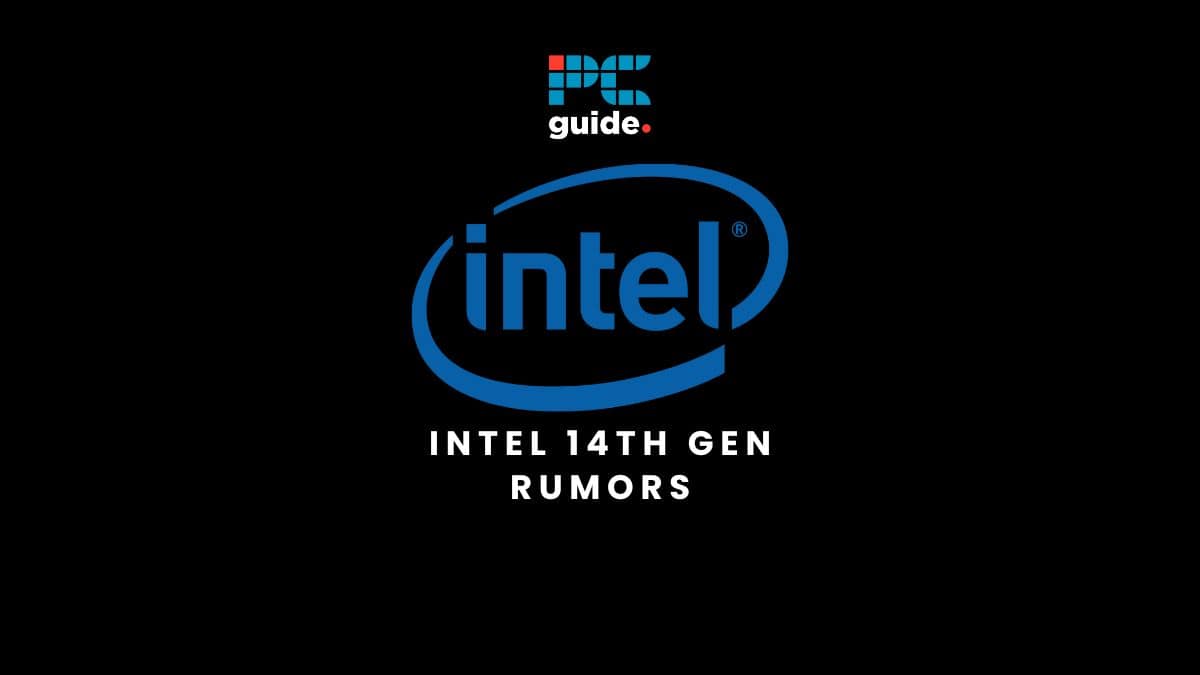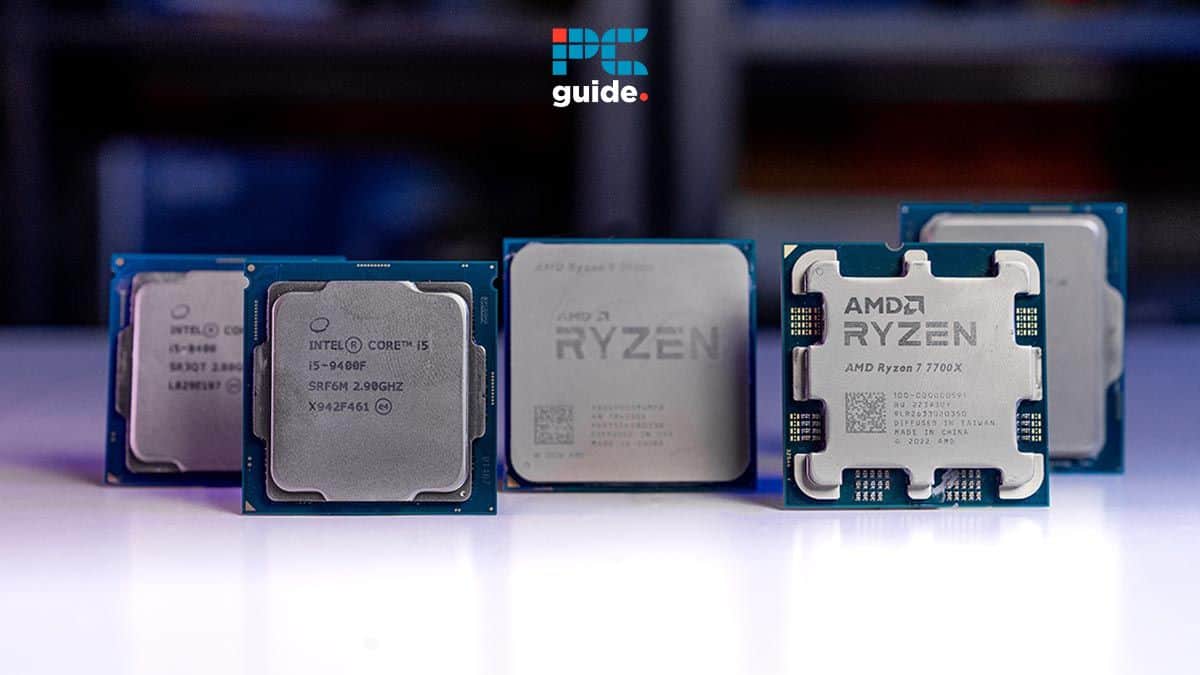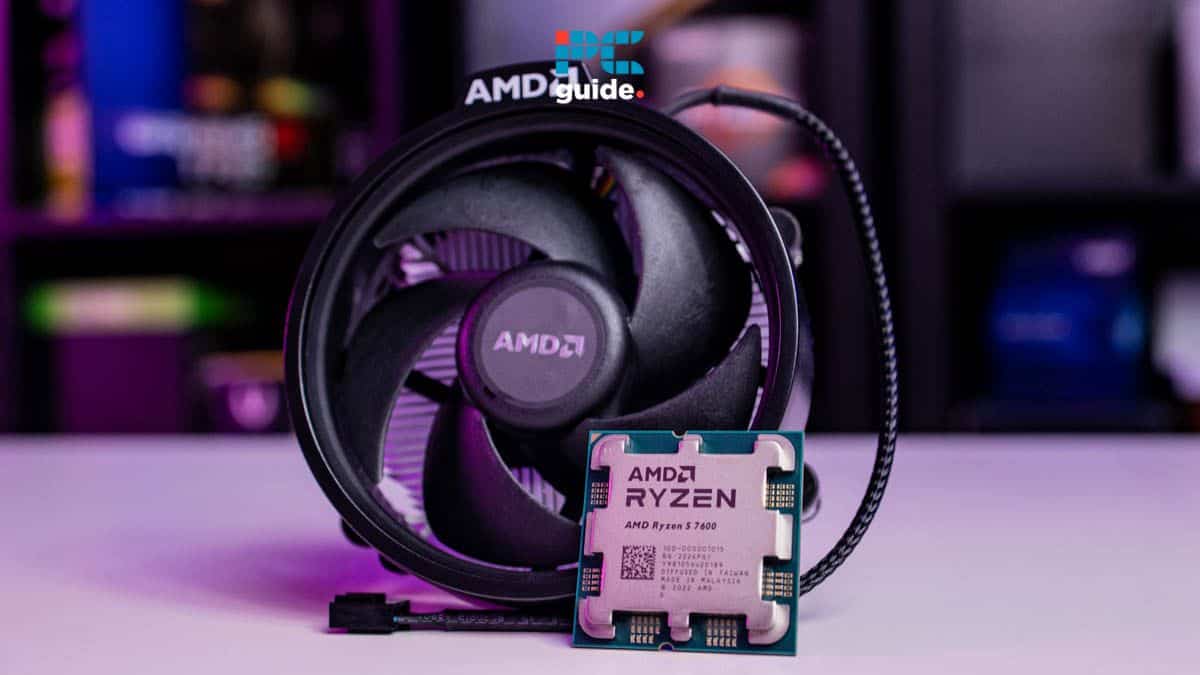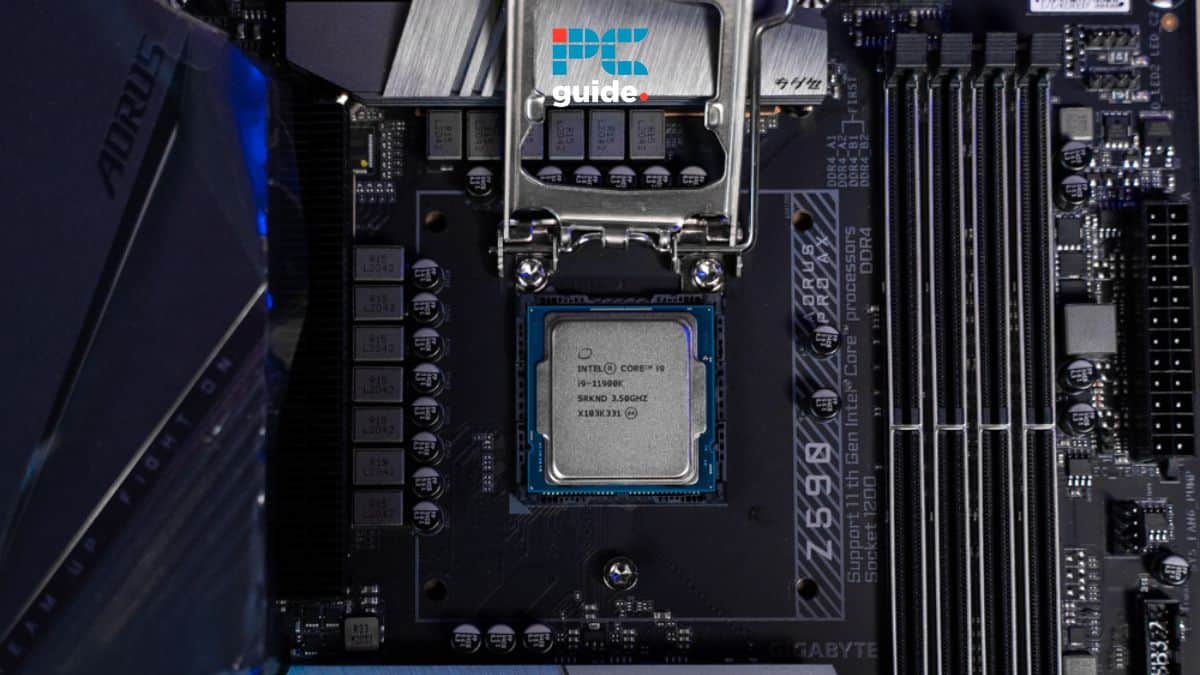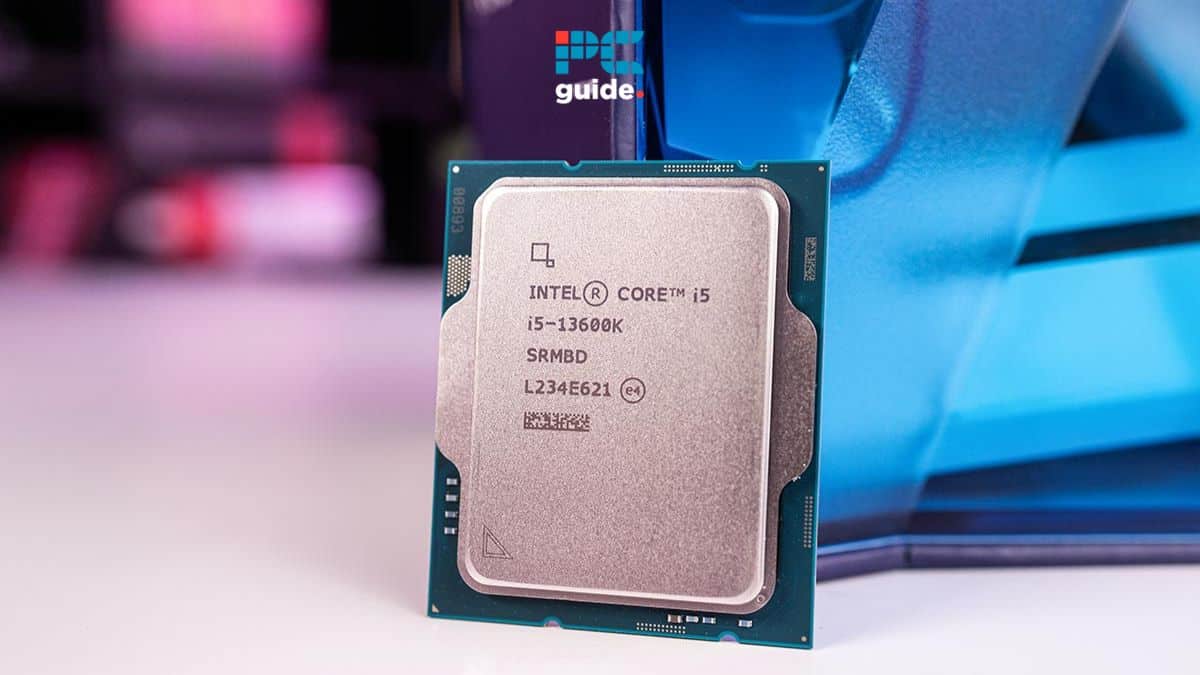Intel 14th gen CPUs are appearing as a much-anticipated Raptor Lake refresh, now the Meteor Lake architecture seems to be pushed to 2024. In this article, we’ll delve into the latest Intel 14th Gen information, exploring (at the time of writing) confirmed and unconfirmed information, and navigating through a sea of speculation. Keep in mind that information can change as official details emerge, so stay tuned for updates on this promising new generation of processors.
Intel 14th Gen release date
The Intel 14th Gen release date, as officially confirmed by Intel is Tuesday, October 17th. This was made official on October 16th, with an Intel press release heralding the arrival of the Core i9-14900K/KF and the Core i7-14700K/KF. The release stated:
“Intel Core 14th Gen desktop processors will be available at retail outlets and via OEM partner systems starting Oct. 17, 2023.”
We don’t yet know if more processors will be available for consumers at this date, but we do know that the 14900K, 14700K, and 14600K are available for pre-order (as of the 16th).
Earlier this year, Intel reaffirmed during earnings calls that the company would ramp up the production of Meteor Lake CPUs in the second half of 2024. So that’s how we’ve gotten where we are, with Raptor Lake R or the ‘Refresh’ now front and center, and Meteor Lake pushed to next year.
Intel 14th Gen CPU: confirmed and rumored specs
At the time of writing, we only have confirmed specs for the following six 14th gen CPUs – per Intel’s own product listings. These are:
| Model | Cores | Threads | Max Turbo Frequency [GHz] | Cache Size | Integrated Graphics |
|---|---|---|---|---|---|
| Intel Core i9 14900K | (8+16) 24 | 32 | Up to 6.0 | 36 MB | Intel UHD Graphics 770 |
| Intel Core i9 14900KF | (8+16) 24 | 32 | Up to 6.0 | 36 MB | N/A |
| Intel Core i7 14700K | (8+12) 20 | 28 | Up to 5.6 | 33 MB | Intel UHD Graphics 770 |
| Intel Core i7 14700KF | (8+12) 20 | 28 | Up to 5.6 | 33 MB | N/A |
| Intel Core i5 14600K | (6+8) 14 | 20 | Up to 5.3 | 24 MB | Intel UHD Graphics 770 |
| Intel Core i5 14600KF | (6+8) 14 | 20 | Up to 5.3 | 24 MB | N/A |
A more comprehensive list of vital specs shared, now deleted by leaker YuuKi_AnS (reported by Wccftech in September) provided a full list of rumored specs for the new lineup. It even includes specs for the rumored Intel 300 CPUs, which are believed to be the successor to Pentium Gold products.
This list seemed to be mirrored and matched by a further leak appearing on October 9th and reported on by Videocardz. Again, at the time of writing few of those specs are confirmed, but they have appeared enough now to provide heavy suggestions of what users can expect beyond initial releases. Here’s the leaked table:
| CPU | Cores | Threads | Base clock | Boost clock | L2 / L3 cache | TDP |
|---|---|---|---|---|---|---|
| Core i9-14900K (confirmed) | 8+16 (24) | 32 | 3.2 GHz | 6.0 GHz | 32 / 36 MB | 125W |
| Core i9-14900KF (confirmed) | 8+16 (24) | 32 | 3.2 GHz | 6.0 GHz | 32 / 36 MB | 125W |
| Core i9-14900 | 8+16 (24) | 32 | 2.0 GHz | 5.8 GHz | 32 / 36 MB | 65W |
| Core i9-14900F | 8+16 (24) | 32 | 2.0 GHz | 5.8 GHz | 32 / 36 MB | 65W |
| Core i9-14900T | 8+16 (24) | 32 | 1.1 GHz | TBD | 32 / 36 MB | 35W |
| Core i7-14700K (confirmed) | 8+12 (20) | 28 | 3.4 GHz | 5.6 GHz | 28 / 33 MB | 125W |
| Core i7-14700KF(confirmed) | 8+12 (20) | 28 | 3.4 GHz | 5.6 GHz | 28 / 33 MB | 125W |
| Core i7-14700 | 8+12 (20) | 28 | 2.1 GHz | 5.4 GHz | 28 / 33 MB | 65W |
| Core i7-14700F | 8+12 (20) | 28 | 2.1 GHz | 5.4 GHz | 28 / 33 MB | 65W |
| Core i7-14700T | 8+12 (20) | 28 | 1.3 GHz | TBD | 28 / 33 MB | 35W |
| Core i5-14600K (confirmed) | 6+8 (14) | 20 | 3.5 GHz | 5.3 GHz | 20 / 24 MB | 125W |
| Core i5-14600KF (confirmed) | 6+8 (14) | 20 | 3.5 GHz | 5.3 GHz | 20 / 24 MB | 125W |
| Core i5-14600 | 6+8 (14) | 20 | 2.7 GHz | 5.2 GHz | 20 / 24 MB | 65W |
| Core i5-14600T | 6+8 (14) | 20 | 1.8 GHz | TBD | 20 / 24 MB | 35W |
| Core i5-14500 | 6+8 (14) | 20 | 2.6 GHz | 5.0 GHz | 20 / 24 MB | 65W |
| Core i5-14500T | 6+8 (14) | 20 | 1.7 GHz | TBD | 20 / 24 MB | 35W |
| Core i5-14400 | 6+8 (14) | 20 | 2.5 GHz | 4.7 GHz | 9.5/ 20 MB | 65W |
| Core i5-14400F | 6+8 (14) | 20 | 2.5 GHz | 4.7 GHz | 9.5/ 20 MB | 65W |
| Core i5-14400 | 6+4(10) | 16 | 2.5 GHz | 4.7 GHz | 9.5/ 20 MB | 65W |
| Core i5-14400F | 6+4(10) | 16 | 2.5 GHz | 4.7 GHz | 9.5/ 20 MB | 65W |
| Core i5-14400T | 6+4(10) | 16 | 1.5 GHz | TBD | 9.5/ 20 MB | 35W |
| Core i3-14100 | 4+0 (4) | 8 | 3.5 GHz | 4.7 GHz | 5.0 / 12 MB | 60W |
| Core i3-14100F | 4+0 (4) | 8 | 3.5 GHz | 4.7 GHz | 5.0 / 12 MB | 58W |
| Core i3-14100T | 4+0 (4) | 8 | 2.7 GHz | TBD | 5.0 / 12 MB | 35W |
| Intel 300 | 2+0 (2) | 4 | 3.9 GHz | N/A | 2.5 / 6.0 MB | 46W |
| Intel 300T | 2+0 (2) | 4 | 3.4 GHz | N/A | 2.5 / 6.0 MB | 35W |
So where do things sit in relation to Intel 13th gen overall? Well, the main differences would be in the available cores, the clock speeds, and the total L2 and L3 cache. For example, the rumored 14900K as above would offer a 0.2GHz improvement to base and boost clocks vs the 13900K.
Elsewhere, the 14700K’s specs vs the 13700K give it four more cores for a total of 20 (vs 16 of the 13700K), a lift in threads to 28 (vs 24), a 0.2GHz higher boost clock and 7MB more total cache. Such incremental improvements may not seem like much, but they could add up to clear differentiation in performance.
Intel 14th Gen CPU: performance indicators
If the above and similar improvements do ring true, then some of the benchmark leaks we’ve seen may also prove to be true. And it may mean that in raw performance Intel continues the legacy of Alder Lake and Raptor Lake in edging beyond AMD and its own desktop CPUs.
In August, The Verge reported on a leak from MSI stating that Intel’s 14th gen performance may prove to be 17% higher than that of Intel’s 13th Gen. The problem is that performance has such a lot of factors, it’s near impossible to speculate on.
Third-party verified benchmarks on retail CPUs are the best measure we have of performance and you don’t get those until official release. More recent leaks have suggested that generational Intel vs Intel gains may be between 12% and 6%. Meanwhile, the Core i9 14900K is allegedly capable of both beating and losing to AMD’s Ryzen 9 7950X3D in benchmarks. The long and short of it is that right now we can only wait for confirmed tests and verified results.
Intel 14th Gen CPU: price speculation and information
Full Intel 14th Gen pricing will, again, be confirmed with any official announcement. We do have the pre-order pricing (per Amazon) for some SKUs now, which are as follows, but the full 14th gen price list is yet to be known.
- Core i9-14900K – $599
- Core i9-14900KF – $574
- Core i7-14700K – $419
- Core i7-14700KF -$394
- Core i5-14600K – $329
- Core i5 14600KF – £304
PCGuide thoughts
Incremental improvements are still improvements, and costs will always reflect those as such. We seem to have a more uniform, but still unconfirmed view of what Intel’s 14th Gen CPUs should be, offer, and cost. Regardless, we’ll be updating here and across the site as soon as we know more about any confirmed arrivals and their potential benefits to PC users.
Will Intel 14th Gen CPUs be compatible with the LGA 1700 socket?
Yes. When ’14th Gen’ was believed to be a new Meteor Lake architecture, the LGA 1851 socket was thought to be necessary for the new CPUs. But since 14th Gen is now a ‘Raptor Lake Refresh’, the LGA 1700 socket will be the one the new chip arrivals use.
Will Intel 14th gen CPUs support DDR5 memory?
Yes, Intel 14th Gen CPUs can fully support DDR5 memory, with a maximum memory speed of DDR5-6400 MT/s and a maximum capacity of 48GB per module. This means that these CPUs will benefit from the increased performance and efficiency provided by DDR5 memory technology, which is becoming more prevalent in the market.


